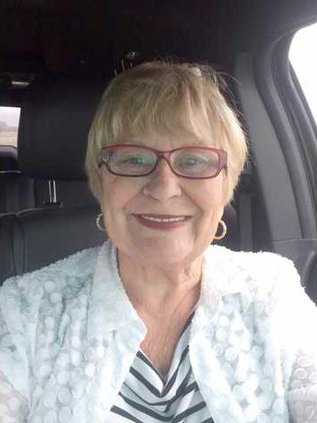This past weekend was a wake up call for many of us. No internet, no land line, no electricity. Going without electricity, even for a day, once again teaches us how easy we have it.
With no hot water, and no washing facilities, I understand why people couldn’t look and smell their best at all times. Don’t you? It changes our view of ourselves and how we maintain our grooming habits, doesn’t it?
But, I found that having all this ice and cold gave me an excuse to be lazy and totally sloppy. It’s a good thing I didn’t have to go to work outside the home.
My hair looked like a matted bush on my head, blond tufts sticking up every which way as we lit candles and hauled wood to the fireplace. If Fred still “cares” for me, if there is still a spark in the old guy, then thank God. I sure did look like the wreck of the Hesperus for several days.
I decided to look up the term “dreadlocks” since I was as close to having them as any Nordic, white, blond woman could. Did you know that the term, “dreadlocks” entered the English language in the ‘50s” with the rise of the Rastifarian movement among Jamaican poor blacks. One precept of the movement was the prohibition on cutting the hair. The long hair was matted and braided into ropelike strands and coils. The wearer of such locks lived in fear or dread (hence the term) of God (Jah). But the hairstyle was in vogue for centuries even before this term “dreadlocks” was coined.
There’s more to this but I will leave it at that. Interesting, isn’t it?
I mentioned that I looked like the wreck of the Hesperus. This term refers to a poem by Henry Wadsworth Longfellow about a captain and his little girl who get caught in an icy storm on the schooner called the Hesperus. The storm is a disaster and the skipper dies first by freezing to death and his child is found frozen as well. The ship was battered and pierced. It landed in rocks. It was a wreck all right.
I don’t think I will say I look like that any more.
But we experienced the icy storm so in this case, it was an apt description.
The day before the “Big One”, the weather men/women were having a conniption fit, analyzing, re-hashing, and adjusting their prognostications. The population got amped.
The night before the “Big One”, I ran into the grocery store about 7:30 p.m. to get a bag of cat food. There were no parking places. The game was on!
I walked down the aisles just to see what people were buying. Only a few egg cartons remained. The milk was depleted. The bottled water shelves were bare. The bread was cleaned out as well, except for some buns. Peanut butter was low. I guessed what most were going to be eating.
The staff was working as fast as they could to replenish the shelves. They were struggling to keep up. And some were amazed at the panic reaction of the public.
Fred and I say that we wonder what would happen if we had a real, national emergency! But, maybe this was one. I don’t know.
The next morning, the media was still going at it. They said, “It’s coming.” I felt like a big dragon was stomping toward us. It’s coming. It’s coming.
Then it did come.
And we hunkered down if we could. But many didn’t have that luxury. They needed to somehow go to work. They had jobs serving the public; the hospital, the state hospital, the convalescent home. And of course, the power crews were out and at work. But we stayed at home, and stayed put.
Munching on our peanut butter sandwiches and fried eggs, we watched out the window. We missed our morning paper as we listened to the branches crack and pop.
Today, many still don’t have their power back. No lights, no television, no stoves, hot water, heat.
But we as a society are survivors. (I hope) people are helping neighbors. Everyone is pitching in. Folks are checking in on the shut-ins. It’s not pretty to go through these events. It’s messy, actually.
But we do manage well. We are people who are committed to community. We try to look for the best, don’t we? We do stick together. And we do help each other in times of need.
Then, we clean up our varied messes, and go on living.
Isn’t that what we’re all about?
Judi Tabler is a guest columnist for the Great Bend Tribune and her views don’t necessarily reflect those of the paper. She can be reached at bluegrasses@gmail.com
A Womans View
The storm




